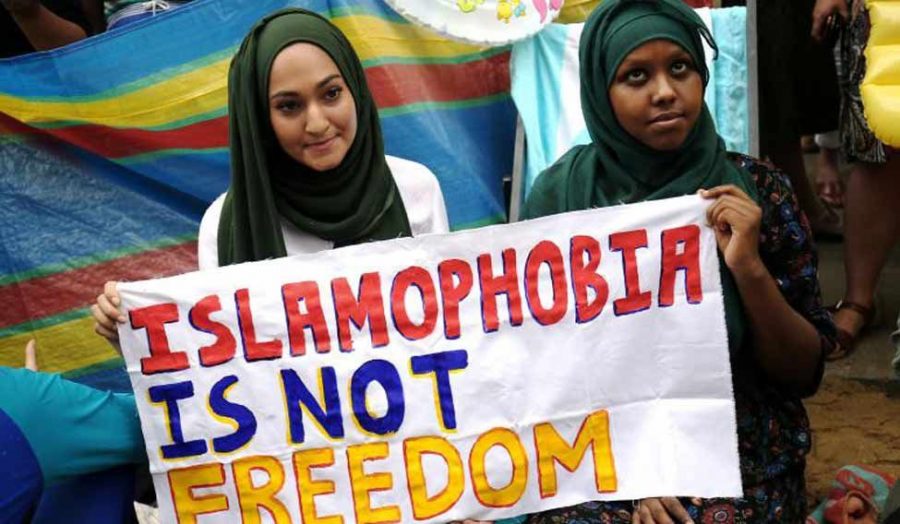France Bans the Burkini: Is it Prejudiced?
More stories from Arianna Chen
Ensuing the horrendous terrorist attack that occurred on French soil on Bastille Day, 30 French towns have banned the burkini, which is defined as “a type of swimsuit for women… that covers the whole body except the face, the hands and the feet.” The French government claims that this ban was created primarily due to the fear of another terrorist attack.
The burkini, while not an explicitly religious garment, is popular among Muslim women.
Nice sparked public outrage when some armed police officers attempted to enforce this ban upon a Muslim woman who was wearing a burkini. These armed officers crowded around the woman, forced her to remove her garment, and appeared to be writing her a fine in the photos leaked.
This is just one example of this burkini ban being enforced.
However, Nice revoked this ban on September 1, claiming that this ban was “discriminatory” and that there is no logical reasoning that supports the idea that the burkini itself presents a public danger.
Understandably, after a city is attacked by terrorists, fear ensues. However, this deep fear for their people, their families, and themselves is often followed by mass generalizations, public hysteria, and dangerous sentiments.
Claiming that a woman wearing a swimsuit that doesn’t expose her body is somehow automatically affiliated with a terrorist group or a threat is absolutely ridiculous to say at the very least.
Some mayors defend their decision, claiming that not many of these women wear burkinis “because they want to– but because they have to.” These mayors act as if they are doing these women a favor by banning the burkini. But what about the women who do want to genuinely wear a burkini? Now they can’t, and would be forced to strip out of their burkini if they attempted to wear it.
The summary of the situation is that because extreme Islamic groups such as ISIS are associated with these veil-like garments such as the burkini, the burqa, and the hijab, people are fearful of letting women wear these garments. This of course is understandable to a certain extent, however, there has to be another solution than to simply expel the garment, impacting the many who are not terrorists.
Yes, of course there are radical Muslim terrorist groups. But the key word there is radical, as in not all Muslims. You know what the big key word in there is? Terrorist. The words Muslim and terrorist are both mentioned separately because they are not synonyms.
Just because someone is a Muslim, it does not mean that they are a terrorist.
As preposterous as it feels for me to have to say this, and for you to have to read this, it feels necessary to say. Because the fact of the matter is that this is not just an issue in France. This is not some obscure foreign issue with generalizations and discrimination.
In America, the leading Republican Presidential candidate, Donald Trump, has stated that he wants to temporarily halt the immigration of Muslims into the U.S. for the sake of national security. Donald Trump has proposed that Muslims should take a test assessing their values to ensure that they are not radical Islams.
Terrorism is a scary topic, and recently, it’s been a very (horrifyingly) omnipresent issue in society. And while I can’t say for sure what the answer is, I can say that it isn’t this. The answer to ending terrorism is not banning Muslims from entering the U.S., banning a so-called “religious affiliated” garment to prevent public disturbance, or telling your citizens “if you don’t want to live the way we do, don’t come.”

